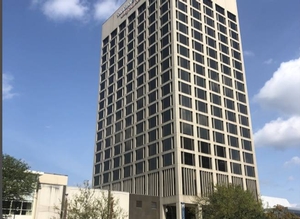Articles
Resolving Chronic Nonfiling Situations
By Michael P. Duffy on August 4, 2020The IRS estimates that there are currently seven million “nonfilers” in the United States. Nonfilers are folks who, for one reason or another, simply do not file their federal income tax returns.
Some people think that not filing will keep them off the IRS’s radar. Because most taxpayers have a legal obligation to file annually, nonfiling is illegal. Almost as critically, nonfiling is not an effective way to avoid scrutiny on a long-term basis. Serial nonfilers should expect eventually to receive a bill from the IRS for all the years they haven’t filed, and should expect that the IRS will also be adding interest and penalties to the amount of tax due. Consequently, what may have been manageable tax liability in each individual tax year quickly becomes insurmountable when multiplied by two, six, or fifteen years. For these reasons, failing to file is ultimately a losing proposition.
Read on to learn why nonfilers are usually identified by the IRS, what nonfilers can expect when they get caught, and what nonfilers can expect when they start the voluntary disclosure process.
How is the IRS even going to know?
The IRS has various tools to identify nonfilers. The primary one is the information return matching system, which imposes compliance obligations on various types of payors. When a business pays for services or pays salaries to employees, it has to give the payee a Form 1099 or a W-2 at the end of the year. The issuance of these statements is widespread because payors can get hit with flat-fee penalties for each information return they fail to issue. The IRS requires payors to give these information returns to the respective payees, and also to file duplicate copies of them with the IRS.
The IRS does not lose information returns; their ability to deal with nonfilers receiving payments on an information return is limited solely by their manpower. The receipt of most types of information returns by a payee will trigger an income tax return filing obligation. So, when a nonfiler is receiving consistent W-2 or 1099 income, they should logically expect that the IRS already has them on a list of nonfilers.
Over the years, the types of transactions that must be reported to the IRS on annual information statements have increased. Forms 1099 of various types are now used to report the receipt of interest (Form 1099-INT), dividends (Form 1099-DIV), receipt of retirement account distributions (Form 1099-R), cancellation of indebtedness (Form 1099-C), receipt of gambling winnings (Form W-2G), receipt of proceeds from the sale of real property (Form 1099-S), receipts from the settlement of lawsuits (Form 1099-MISC), payments from qualified education programs (Form 1099-Q), and payments received from a processor of credit card transactions (Form 1099-K). The reality is that, unless you have a business that somehow makes money by not interacting with third parties, there is likely going to be some sort of statement filed with the IRS showing you were paid.
What happens when I get caught?
When the IRS has information indicating that a taxpayer is over the minimum filing threshold – typically in the form of an information return – it does not need to wait for the taxpayer to come forward and file a return in order to assess tax. This is because the IRS has the power to create something called a “substitute for return.”
Creating a substitute for return involves the IRS proposing an assessment for the taxpayer based on the information in its possession, adjusted for interest and penalties. The proposed assessment is sent to the taxpayer, who has 30 days to either agree to the proposed assessment or file a completed tax return for the period in question. In the event the taxpayer doesn’t do anything, the IRS will treat the amount of the proposed assessment reported on the substitute for return as if the taxpayer filed the return on their own accord. If the taxpayer does not exercise appeals rights, the assessment will automatically become final and will give the IRS rights to pursue the amount due in collections. The collection process then gives the IRS the right to file tax liens, levy bank accounts, and garnish the taxpayer’s wages.
A taxpayer should never let the IRS create a substitute for return. The reason for this is that the IRS makes a number of less-than-favorable assumptions when it computes the taxpayer’s estimated liability. For example, proceeds reported to the taxpayer become gross income on a substitute for return, even if the taxpayer didn’t make money on a large transaction because they had a high cost basis or a loss. A substitute for return in many cases will additionally not give the taxpayer other automatic deductions they would otherwise be entitled to if they filed a return on their own. Assuming the taxpayer has income and no deductions is defensible from the IRS’s perspective; it’s legally up to the taxpayer to come forward and show they have deductions or prove they had a basis in property sold to reduce the total amount of gain. But this assumption means taxpayers that simply don’t respond end up being assessed tax they don’t actually owe. By not responding to a proposed substitute for return, taxpayers end up forfeiting valuable appeals rights and losing their best opportunity to lower their taxes.
Can nonfiling be a criminal offense?
The answer to this question is “maybe.” Getting caught as a nonfiler does not usually result in the IRS seeking criminal charges. Criminal charges require an intent component that is hard to establish when a taxpayer simply doesn’t carry out a legal duty they have, such as filing their annual tax return.
Where the possibility of criminal charges comes into play is when a taxpayer has a prior track record of nonfiling and has already been caught for it. The IRS might believe the taxpayer could be the dumbest person in the world and not know they need to file a tax return every year, but they won’t believe that if this is the second or third time that person has been caught and charged massive penalties. In this case, the IRS will now have the ammunition it needs to build a possible criminal case because there is no longer a credible argument that the taxpayer just forgot or didn’t know they needed to file. The possibility of criminal charges is also influenced to a certain degree by the amount of actual tax due to the government.
What’s it really going to cost me to fix this?
The IRS typically has three years from the date in which a tax return is filed to conduct an audit and assess additional tax. The catch is that if a return is never filed, the three-year period never begins, meaning the IRS can come after nonfilers for back taxes for all years that were not filed at any time. As a matter of course, the IRS typically does not go back ten or twenty years when it identifies nonfilers, but nonfilers whi come forward voluntarily need to be prepared to file at least a half-dozen returns for the most recent tax years.
Taxpayers who try to catch up on multiple years of returns will normally be hit with a 25% late filing penalty and additional penalties for late payment. These penalties combined can equal 47.5% of the total amount of tax due on the return. The IRS will also assess interest, which is compounded back to the original due date. The penalty component of this assessment can be waived, but serial nonfilers will have difficulty obtaining a waiver.
There is also the possibility that serial nonfilers may not actually owe any tax. This may be the case if the taxpayer has sources of income reported by third parties that withheld income tax, as is commonly the case with wages reported on a W-2. If the tax withheld is greater than the liability, there isn’t a basis for an assessment. On income tax returns, penalties and interest are normally based on the amount of underpaid tax; if there is no underpayment, there are no interest and penalties due. When nonfilers in this situation are overpaid, moreover, they are not just losing out on the opportunity cost of the government holding onto their money. Taxpayers who do not file their returns have only two years to claim a refund from the time in which their withholding payments were deemed made. Given that, taxpayers in a serial nonfiling position who owe some years, and have a refund other years, could end up in a position where they owe on the bad years and also lose all their potential refunds. This is obviously not a good result.
Taxpayers have some options to voluntarily come forward and file their returns, although currently the IRS has no standard deal package that it offers to nonfilers of income tax returns. For this reason, serial nonfilers should consult a qualified professional to help them navigate the process of catching up on their missing returns. One thing is clear in all resolutions involving nonfilers: taxpayers will not be able to work something out with the IRS until they file all of the required missing returns and voluntarily report all of their income.
©2020. This material is intended to offer general information to clients and potential clients of the firm, which information is current to the best of our knowledge on the date indicated below. The information is general and should not be treated as specific legal advice applicable to a particular situation. Fletcher Tilton PC assumes no responsibility for any individual’s reliance on the information disseminated unless, of course, that reliance is as a result of the firm’s specific recommendation made to a client as part of our representation of the client. Please note that changes in the law occur and that information contained herein may need to be reverified from time to time to ensure it is still current. This information was last updated July 2020.
Some people think that not filing will keep them off the IRS’s radar. Because most taxpayers have a legal obligation to file annually, nonfiling is illegal. Almost as critically, nonfiling is not an effective way to avoid scrutiny on a long-term basis. Serial nonfilers should expect eventually to receive a bill from the IRS for all the years they haven’t filed, and should expect that the IRS will also be adding interest and penalties to the amount of tax due. Consequently, what may have been manageable tax liability in each individual tax year quickly becomes insurmountable when multiplied by two, six, or fifteen years. For these reasons, failing to file is ultimately a losing proposition.
Read on to learn why nonfilers are usually identified by the IRS, what nonfilers can expect when they get caught, and what nonfilers can expect when they start the voluntary disclosure process.
How is the IRS even going to know?
The IRS has various tools to identify nonfilers. The primary one is the information return matching system, which imposes compliance obligations on various types of payors. When a business pays for services or pays salaries to employees, it has to give the payee a Form 1099 or a W-2 at the end of the year. The issuance of these statements is widespread because payors can get hit with flat-fee penalties for each information return they fail to issue. The IRS requires payors to give these information returns to the respective payees, and also to file duplicate copies of them with the IRS.The IRS does not lose information returns; their ability to deal with nonfilers receiving payments on an information return is limited solely by their manpower. The receipt of most types of information returns by a payee will trigger an income tax return filing obligation. So, when a nonfiler is receiving consistent W-2 or 1099 income, they should logically expect that the IRS already has them on a list of nonfilers.
Over the years, the types of transactions that must be reported to the IRS on annual information statements have increased. Forms 1099 of various types are now used to report the receipt of interest (Form 1099-INT), dividends (Form 1099-DIV), receipt of retirement account distributions (Form 1099-R), cancellation of indebtedness (Form 1099-C), receipt of gambling winnings (Form W-2G), receipt of proceeds from the sale of real property (Form 1099-S), receipts from the settlement of lawsuits (Form 1099-MISC), payments from qualified education programs (Form 1099-Q), and payments received from a processor of credit card transactions (Form 1099-K). The reality is that, unless you have a business that somehow makes money by not interacting with third parties, there is likely going to be some sort of statement filed with the IRS showing you were paid.
What happens when I get caught?
When the IRS has information indicating that a taxpayer is over the minimum filing threshold – typically in the form of an information return – it does not need to wait for the taxpayer to come forward and file a return in order to assess tax. This is because the IRS has the power to create something called a “substitute for return.” Creating a substitute for return involves the IRS proposing an assessment for the taxpayer based on the information in its possession, adjusted for interest and penalties. The proposed assessment is sent to the taxpayer, who has 30 days to either agree to the proposed assessment or file a completed tax return for the period in question. In the event the taxpayer doesn’t do anything, the IRS will treat the amount of the proposed assessment reported on the substitute for return as if the taxpayer filed the return on their own accord. If the taxpayer does not exercise appeals rights, the assessment will automatically become final and will give the IRS rights to pursue the amount due in collections. The collection process then gives the IRS the right to file tax liens, levy bank accounts, and garnish the taxpayer’s wages.
A taxpayer should never let the IRS create a substitute for return. The reason for this is that the IRS makes a number of less-than-favorable assumptions when it computes the taxpayer’s estimated liability. For example, proceeds reported to the taxpayer become gross income on a substitute for return, even if the taxpayer didn’t make money on a large transaction because they had a high cost basis or a loss. A substitute for return in many cases will additionally not give the taxpayer other automatic deductions they would otherwise be entitled to if they filed a return on their own. Assuming the taxpayer has income and no deductions is defensible from the IRS’s perspective; it’s legally up to the taxpayer to come forward and show they have deductions or prove they had a basis in property sold to reduce the total amount of gain. But this assumption means taxpayers that simply don’t respond end up being assessed tax they don’t actually owe. By not responding to a proposed substitute for return, taxpayers end up forfeiting valuable appeals rights and losing their best opportunity to lower their taxes.
Can nonfiling be a criminal offense?
The answer to this question is “maybe.” Getting caught as a nonfiler does not usually result in the IRS seeking criminal charges. Criminal charges require an intent component that is hard to establish when a taxpayer simply doesn’t carry out a legal duty they have, such as filing their annual tax return. Where the possibility of criminal charges comes into play is when a taxpayer has a prior track record of nonfiling and has already been caught for it. The IRS might believe the taxpayer could be the dumbest person in the world and not know they need to file a tax return every year, but they won’t believe that if this is the second or third time that person has been caught and charged massive penalties. In this case, the IRS will now have the ammunition it needs to build a possible criminal case because there is no longer a credible argument that the taxpayer just forgot or didn’t know they needed to file. The possibility of criminal charges is also influenced to a certain degree by the amount of actual tax due to the government.
What’s it really going to cost me to fix this?
The IRS typically has three years from the date in which a tax return is filed to conduct an audit and assess additional tax. The catch is that if a return is never filed, the three-year period never begins, meaning the IRS can come after nonfilers for back taxes for all years that were not filed at any time. As a matter of course, the IRS typically does not go back ten or twenty years when it identifies nonfilers, but nonfilers whi come forward voluntarily need to be prepared to file at least a half-dozen returns for the most recent tax years. Taxpayers who try to catch up on multiple years of returns will normally be hit with a 25% late filing penalty and additional penalties for late payment. These penalties combined can equal 47.5% of the total amount of tax due on the return. The IRS will also assess interest, which is compounded back to the original due date. The penalty component of this assessment can be waived, but serial nonfilers will have difficulty obtaining a waiver.
There is also the possibility that serial nonfilers may not actually owe any tax. This may be the case if the taxpayer has sources of income reported by third parties that withheld income tax, as is commonly the case with wages reported on a W-2. If the tax withheld is greater than the liability, there isn’t a basis for an assessment. On income tax returns, penalties and interest are normally based on the amount of underpaid tax; if there is no underpayment, there are no interest and penalties due. When nonfilers in this situation are overpaid, moreover, they are not just losing out on the opportunity cost of the government holding onto their money. Taxpayers who do not file their returns have only two years to claim a refund from the time in which their withholding payments were deemed made. Given that, taxpayers in a serial nonfiling position who owe some years, and have a refund other years, could end up in a position where they owe on the bad years and also lose all their potential refunds. This is obviously not a good result.
Taxpayers have some options to voluntarily come forward and file their returns, although currently the IRS has no standard deal package that it offers to nonfilers of income tax returns. For this reason, serial nonfilers should consult a qualified professional to help them navigate the process of catching up on their missing returns. One thing is clear in all resolutions involving nonfilers: taxpayers will not be able to work something out with the IRS until they file all of the required missing returns and voluntarily report all of their income.
©2020. This material is intended to offer general information to clients and potential clients of the firm, which information is current to the best of our knowledge on the date indicated below. The information is general and should not be treated as specific legal advice applicable to a particular situation. Fletcher Tilton PC assumes no responsibility for any individual’s reliance on the information disseminated unless, of course, that reliance is as a result of the firm’s specific recommendation made to a client as part of our representation of the client. Please note that changes in the law occur and that information contained herein may need to be reverified from time to time to ensure it is still current. This information was last updated July 2020.

















